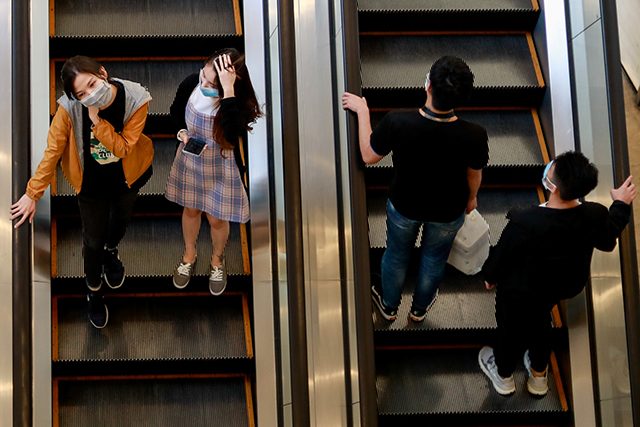
President Rodrigo Duterte finally agreed to impose a travel ban, however, only on travelers coming from China’s Hubei province, where Wuhan, the ground zero for the deadly novel coronavirus or 2019-nCoV is located.
This was just a re-imposition of the Civil Aeronautics Board’s lockdown on all flights to and from the province imposed last January 23.
“Sang-ayon po si Pangulo na iimplementa ang temporary travel ban sa mga manggagaling mula Wuhan city and the entire Hubei province ng China,” Senator Christopher “Bong” Go, a long-time aide to Duterte, said in a statement.
Health Secretary Francisco Duque III also previously expressed his reluctance to a temporary travel ban to all Chinese flights, citing this would be unfair to Chinese tourists.
Duque reasoned that China might perceive the travel ban unfair given that other countries have confirmed cases as well.
“The reason being, your honor, is we have to be very careful also of possible repercussions of doing this, in light of the fact that confirmed cases of the novel coronavirus are not limited to China,” Duque said.
“If we do this, then the concerned country, China in this case, might question why we’re not doing the same for all other countries that have reported cases of the new coronavirus. It’s very tricky…but we commit to take this into consideration,” he added.
Many Filipinos have been calling for the government to issue a travel ban on all incoming flights from China since reports of the outbreak erupted.
They denounced the government in what they perceived as prioritizing China’s sentiments over the Filipino public’s safety.
Twitter user @ogie_rosa questioned why is the country afraid of China’s reaction.
“Bakit ka matatakot makwestyon ng Tsina? Tsina ba ang pinagsisilbihan mo at hindi ang mga Pilipino?” he said.
DUQUE on banning Chinese tourists: "It would be unfair…China might question why we’re not doing the same for all other countries that have reported cases of the new coronavirus."
Bakit ka matatakot makwestyon ng Tsina? Tsina ba ang pinagsisilbihan mo at hindi ang mga Pilipino?
— Ogie Rosa (@ogie_rosa) January 29, 2020
Twitter user @easy_jonathan also pointed out that there’s no reason to ban travelers from other countries with confirmed cases aside from China.
“None of them imposed bans on travelers from countries other than China with confirmed cases. Why do we have to?” the user added in a thread.
China didn’t question Taiwan when they imposed restrictions.
China didn’t complain to Singapore when they didn’t let that plane unload and sent it back to Hangzhou.
Speak for yourself. https://t.co/l5JuI6BkCW
— Jonathan E. Sy (@easy_jonathan) January 29, 2020
The first case of nCoV in the country was just confirmed yesterday, January 30.
The patient is a 38-year-old female Chinese national who came from Wuhan last January 21.
The patient is asymptomatic or displaying no symptoms, according to the Department of Health.
Meanwhile, a total of 30 persons are still under investigation—18 in Metro Manila, four in Central Visayas, three in Western Visayas, one in MIMAROPA, one in Eastern Visayas, one in Northern Mindanao and one in Davao.
Rights or xenophobia?
There were online conversations on whether the demand to stop all Chinese nationals from entering the country might be seen as a form of racism or xenophobia, which refers to prejudice or hostility against foreigners.
ALSO READ: Anti-China sentiment spreads along with coronavirus
Twitter user @KorteSupremo_ noted that it’s actually among Filipinos’ rights stated on the Constitution.
Banning people from China is not racism. It’s a preemptive measure enshrined in Article 3 Sec. 6 of our constitution:
”Neither shall the right to travel be impaired except in the interest of national security, public safety, or PUBLIC HEALTH, as may be provided by law.”
— Korte Supremo 👨🏻⚖️ (@KorteSupremo_) January 30, 2020
The right to impair or restrict travel for the sake of public health and safety is enshrined in Article 3, Section 6, wherein.
“The liberty of abode and of changing the same within the limits prescribed by law shall not be impaired except upon lawful order of the court. Neither shall the right to travel be impaired except in the interest of national security, public safety, or public health, as may be provided by law.”
As of publication, countries with travel restrictions to China are the United States, the United Kingdom, France, Hong Kong, Mongolia, India, New Zealand, Finland, Egypt, Australia and Germany.
The United States’ Center for Disease Control and Prevention also placed the situation under the highest level, Warning Level 3, which recommends “travelers to avoid all nonessential travel to China.”









